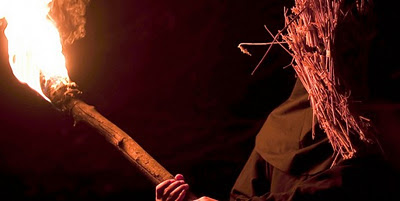Friday, October 7, 2011
Vancouver International Film Festival 2011: Part One
Guilt
Set in the small Quebec city of Saint-Hyacinthe, Marc Bisaillon’s Guilt is a quiet story of violence and its aftermath. Two young friends—Yves, a high-school football star, and Gabriel, a bright underachiever—accidentally kill a man during a druggy, drunken night out on the town. You can guess where it goes from there: Yves doesn’t want to tell anyone, Gabriel goes along with the cover-up and is consumed by guilt, arguments are had, confessions are made, and so on. Bisaillon employs admirable restraint, but there’s no shaking the sense that there’s nothing new here. It’s a familiar tale told well, but with little imagination.
Almayer’s Folly
Liberally adapted from a Joseph Conrad novel—no, really, that’s what the credits say—Almayer’s Folly plays on the conflict between East and West, transposed to the relationship between a father and his daughter. Almayer, a European trader living in the Cambodian jungle, forces a “white education” upon his only daughter, in the process destroying his whole family. It’s a harsh portrait of patriarchal arrogance and pride, but surprisingly humane and tender as well—Almayer is both villain and victim, as worthy of pity as contempt. Employing delicately balanced compositions and fluid camerawork, director Chantal Akerman is in fine form here, turning the jungle into a kind of shape-shifting prison that refuses to give up its inhabitants. A flashback early on comes with the note that what we are seeing occurred “Before, somewhere else.” Likewise, the film refuses easy definitions and clear categories. A sometimes maddening, but strikingly beautiful work.
Kill List
Beginning as a claustrophobic portrait of a family under financial strain, Ben Wheatley’s powerful Kill List soon twists into crime thriller and finally nerve-rattling horror. When an unemployed hit man gets back into the business in order to provide for his wife and son, he discovers himself in the midst of an occult nightmare, complete with pagan rituals in which the rich and powerful hide behind straw masks and sacrifice people. From there, everything falls apart so quickly the queasy feeling in your gut won’t be able to keep up. Wheatley never loses sight of that initial family picture, however, which immediately puts the film head and shoulders above other contemporary horrors. When the going gets gory, there’s actually something at stake. These are human beings, not just sacks of meat being tossed into the grinder. Angry, righteous, horrifying and unrelenting, this is not only an ingenious genre mashup but also one of the best films to come out of the recent financial crisis. So this is what it’s like to survive in cutthroat times? Best get used to the sight of blood.
Labels:
almayer's folly,
ben wheatley,
chantal akerman,
guilt,
kill list,
marc bisaillon,
viff
Subscribe to:
Post Comments (Atom)




No comments:
Post a Comment